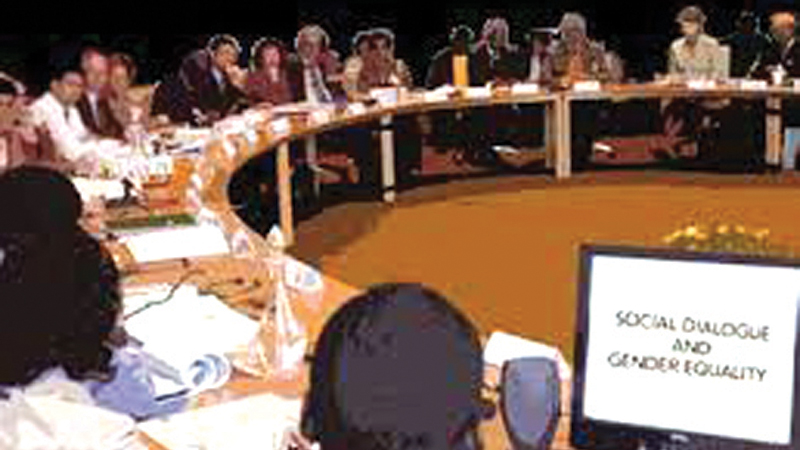- Strikes and legal redress will be minimal
- Creates peaceful workplaces
If there is social dialogue among commercial and public institutions to resolve disputes, there won’t be many complaints to the Labour Department, a senior official of the Department said.
Labour Officer, Social Dialogue and Workplace Co-operation Promotion Division of Labour, Labour Department, W.P. Nimal Weerasinghe said, “If there was healthy communication between workers and the employer, organisations need not advertise regularly calling for workers. Dissatisfaction and disputes at the workplace can be resolved to a great extent if there is an open discussion between the employer and employees.”
At a knowledge-sharing session titled ‘Enhancing Workplace Efficiency and Productivity through Effective Labour Relations’ at the National Chamber of Commerce auditorium, Weerasinghe said if workers had the ‘Our Institution’ mindset the number of industrial disputes will be far less than what we see today.
“Going beyond labour laws which alone cannot solve industrial disputes, is crucial. Open communication and negotiation to address work place concerns and resolve industrial disputes will help create peaceful working environments,” he said.
The ILO acknowledges the complexities surrounding the challenges in resolving industrial disputes and underscores the importance of constructive dialogue among employers and factory owners, workers and Government representatives.
It refers to social dialogue as a process where employers, workers and sometimes Government representatives engage in open communication and negotiation to address concerns and resolve industrial disputes, aiming to reach mutually agreeable solutions through collective bargaining and collaborative problem-solving, rather than resorting to strikes or legal action.
Essentially, it’s a structured way for all parties to voice their issues and work towards a shared understanding and resolution.
The ILO also states that social dialogue, which involves collaboration among different stakeholders to find solutions and resolve disputes, is a crucial tool for good governance.
However, despite such a mechanism to resolve disputes and build healthy workplaces, there is no end to workers taking to the streets demanding their rights.
Hardly a day passes in this country without a strike by employees seeking either relief or more benefits from the employer or the Government.
On the other hand, the corporate world is not short of employers trying to lay-off workers to overcome financial constraints.
If so the question posed by many is that there is no constructive dialogue between employer and employee at all or either of the party is not keen to listen to the other.
“Clash of interest between employer and employee is one of the main reasons for industrial disputes. There is no give and take policy in most workplaces.
The employer and employee think that he or she is always right,” said Weerasinghe relating a story of a husband who cleaned the glass wall for his complaining wife to change her perception about the neighbour’s sullied clothes drying outside.
Citing the quote, Be the change you want to see in the world’ attributed to Mahatma Gandhi he said a change outside will not take place if we don’t first change our way of thinking.
Collective agreements and collective bargaining have been in practice, long before Labour Laws to support the equal party aspect of an agreement were introduced.
Social dialogue not only supports sustainable business practices and better working conditions but also contributes to advancing social justice and decent work for all.









